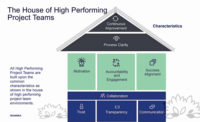Two U.S. engineering schools have opened research centers to help bring the nation's infrastructure up to technological speed, but also to train a rising cadre of engineers.
"Innovation" and "professional development" are bywords at the new $3.7-million Institute for Bridge Engineering at the State University of New York at Buffalo.
"There's not a particularly fat pipeline of bridge engineers," says Andrew Whittaker, director of structural and environmental engineering.
He says the institute aims to attract talent and develop strategies to help bridges resist natural and man-made hazards outside current design requirements.
The institute looks to apply advanced building materials and smart technology to build safer, more cost-effective bridges and to train the next generation of engineers.
"Our goal is to create 'shovel ready' engineers," says Whittaker.
The Transportation Center on Highway Pavement Preservation, located at Michigan State University, Lansing and backed by the U.S. Dept. of Transportation, leads a consortium of schools in research "focused on the preservation of existing pavement," according to its leader, Karim Chatti, professor of civil and environmental engineering.
He says the program will concentrate on improving pavement life by innovating technology in materials, monitoring and management.
But he adds, "Outreach for recruiting K-12 students into engineering is an important focus of the center."
Annual funding of $1.4 million is anticipated through 2017.
Whitaker says the SUNY program also has major industry support.
Chatti says preservation is key because it drives innovative technology and science to understand ahead of time what's going on, as opposed to reacting. "That is the goal," he says.





